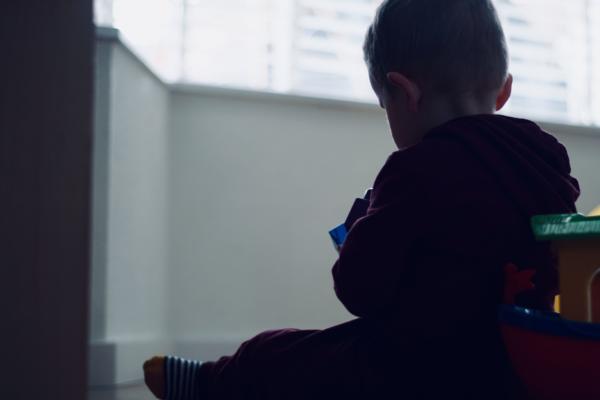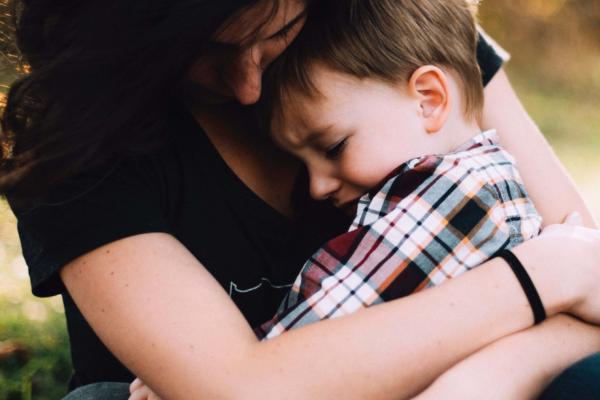Some previously unremarkable words take on a much more significant meaning when used in the context of caring for children or young people with experience of the care system. ‘Moves’ is one of those words.
Most of our churches will be wonderful places of support for families who are experiencing the stress and frustrations of a house move, or the tangle of wonder, delight and shock at the sudden arrival of a newborn baby, and there may well already be systems in place in your church that will practically support families during these times.
But for children and teenagers who are fostered, adopted or living in supported lodgings and the families who care for and support them, the nature of moving house and new arrivals can be very different. There are a number of similarities of course, but in order for the Church to be a wonderful support for these families too, it is worth considering the differences so that you can change your approach where needed.
Why ‘moves’ matter
Social workers and foster carers will often reference how many moves a child has experienced, and it is something that adoptive parents soon realise is deeply significant. As you can imagine, in this context, moves are not a positive thing and mean so much more than just a house move, although of course that is a part of it.
As Louise Bomber explains in her article about attachment, children need stability in their early relationships, which enables them to build attachments with trusted adults and develop the foundational relational understandings they need. Every ‘move’ a child experiences represents a disruption in this process – a time when they experienced instability, confusion, separation from ‘known’ adults, trauma and loss.
So the more moves a child has endured, the more disruption they have experienced. Moves are especially challenging for children when they are sudden and unplanned, particularly when they happen in response to a distressing situation.
A move could be from birth parents to foster carers, to extended birth family members, between foster carers, back to birth family, or eventually on to an adoptive family or a long-term fostering or kinship care placement. The list really is endless.
Every social worker will seek to limit the amount of moves a child experiences, so there are as few disruptions as possible, and the goal is to find ‘permanence’ in a suitable way for the child at the earliest point. Permanence could be a return to birth family with appropriate support in place, kinship care or special guardianship, long-term foster care, or adoption – whichever is the best plan for that child’s current and future wellbeing.
Supporting foster carers and supported lodgings hosts: moving in and moving on
As always, it is best to talk to families in your church about how you can support them and what they need from you, especially during times of transition. Try to have these conversations pre-emptively, so plans are already in place when moves occur.
Depending on the type of care the family offers, moves may be planned or unplanned, so foster carers and hosts may have a few days’ or weeks’ notice of a child or teenager’s arrival, or sometimes only hours or minutes! It may be beneficial for the foster carers and supported lodgings hosts in your church to have a chain of support for prayer and practical help, where they only need to let one person know what is happening and what is required and that person circulates the information appropriately.
The role of a supported lodgings host is less parental and more supportive, and as such, focusses more on preparing a young person for adulthood and independence with their support, rather than building strong attachments. Foster carers, however, play a significant therapeutic role with the children they look after, and when new arrivals come they will be intentionally developing routines and seeking to build good attachments with the children. This may mean that they need to limit external involvement for a while, as these are established.
For the most part, when the time comes for children and young people to move on from the foster family or host it will be a planned move, but there can be occasions when circumstances change and children leave suddenly – and the carers may not be able to tell you why this change has occurred (as discussed in our article on confidentiality). If this occurs, carers will need your love and support, without having to answer lots of questions.
If children are moving on to adoption, foster carers will go through a period of ‘introductions’ with the children and the new family, which can last anything from a week to a month, depending on the ages and needs of the children. During this time, foster carers will be very busy and the new family will be spending a lot of time in the carers’ home. It could be that help with caring for any birth children is appropriate.
All foster carers will respond differently as children move on from their care, but although it is part of their role as a foster carer and they may be deeply happy to see the child return to birth family or join their new forever family, it is usually still a difficult and emotional time. When with the children it is likely the foster carers will do their best to maintain composure and remain positive, so it may be that it is only in the safe space of their church or small group that they are able to let go and express their sadness.
In a similar way, the goal of supported lodgings for teenagers is to prepare the young person for adulthood and independence, and so it's expected that they will move out after the agreed period of time. Although the role of a host is less parental, it's still hoped for and expected that the host and the young person will develop a supportive and encouraging relationship, and so it's natural for a host to feel a sense of loss when a young person moves on, even though many do remain in contact.
Do offer prayer, love and perhaps a small gift or treat for the carers and hosts, but it’s important not to put anything on them – don’t assume to know how they feel or liken their goodbye to something else. This is a unique type of situation so it’s important to let them know they are loved and valued, and to let them express whatever feelings they have.
Supporting adoptive families: welcoming new arrivals
While in many ways the arrival of an adoptive child is like a new baby, there are some significant differences to be aware of. Once again, let the adoptive family guide the church on the appropriate support that they may need or would like from their church family.
Adoptive placements will always be planned, but they can happen quite quickly. When a family is matched with a child or children at panel, it is usually then only a few weeks before they begin introductions. During this time the family may need practical help ensuring their home is ready, and this is certainly something the church can offer help with.
Introductions are exhausting, exhilarating, challenging and overwhelming. It can often be less than two weeks from the first time meeting a child to when they move in, and this time is structured to pass on the care of the child from the foster carer to the new adoptive family.
It is very likely that adoptive families will not be engaged with church from the time introductions begin for a few weeks or even months, but they will certainly appreciate ongoing prayer support as they seek to build relationships with their children. They may appreciate some practical support such as meals or help with any birth children, but it may be that they do not want any external involvement during this time.
It is very important that the church respects and understands the adoptive family’s wishes. They are unlikely to want visitors dropping in and may need to take a significant amount of time away from church activities. When they do feel ready to introduce their new family to the church, it is important that this is done well and without overwhelming the children, so as a general principle it is best not to approach the children unless you have already been introduced to them.
Obviously, this will be different in every family and will very much depend on the age and character of the adopted children. Let the family guide you, and remember what an important role you can have by holding the family in prayer during this time.
Prioritising the children
Throughout all times of transition, it is so important that the children and young people are prioritised and their needs are met, and the best people to be aware of these needs are those who care for the children. Every child and every family is unique, so allow the foster and adoptive families in your church to guide you on how you can best support them. Some of the wonderful systems you already have in place will be much appreciated, such as prayer chains, meal rotas or help with DIY, but they may need to be adapted to be suitable for what the family needs.
Thank you for seeking to support the foster and adoptive families and supported lodgings hosts in your church. Your love and effort to offer the right and appropriate help will show real value to them, and to the children and teenagers they care for.











